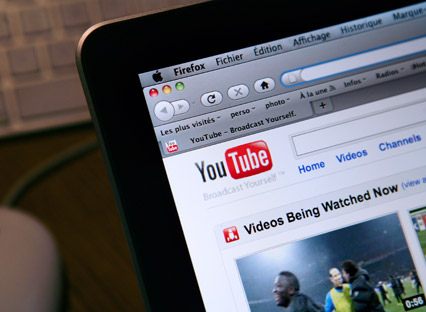Google gives UK special power to police YouTube videos
Home Office officials granted special 'super flagger' status to help block extremist content on video sharing site

A free daily email with the biggest news stories of the day – and the best features from TheWeek.com
You are now subscribed
Your newsletter sign-up was successful
GOOGLE has granted "super flagger" powers to British security officials to help the UK block sensitive material on the popular video sharing platform YouTube.
The new powers, which are likely to provoke protests from civil liberties groups, let Home Office representatives nominate content for removal if they think it might threaten national security.
The move was granted after UK and other governments expressed concern that jihadist material emerging from the war in Syria could serve to radicalise some citizens, the Financial Times reports.
The Week
Escape your echo chamber. Get the facts behind the news, plus analysis from multiple perspectives.

Sign up for The Week's Free Newsletters
From our morning news briefing to a weekly Good News Newsletter, get the best of The Week delivered directly to your inbox.
From our morning news briefing to a weekly Good News Newsletter, get the best of The Week delivered directly to your inbox.
An estimated 2,000 European fighters, including around 400 British citizens are thought to have joined the war in Syria.
New permissions will allow UK officials to flag swathes of content for removal "at scale", rather than having to target each video individually.
In the past, British security officials have urged online service providers such as YouTube to censor extremist content, even if it does not break any of the sites' internal rules.
The UK's immigration minister, James Brokenshire, told the Financial Times that the measures are intended to deal with content "that may not be illegal but certainly is unsavoury and may not be the sort of material that people would want to see or receive".
A free daily email with the biggest news stories of the day – and the best features from TheWeek.com
Brokenshire said that a new "code of conduct" to regulate internet service providers and online companies was also being considered.
YouTube confirmed that the new permission had been granted to the Home Office, but clarified that the final decision on whether content would be allowed on the site or not would remain internal. The company also underlined its own commitment to ensuring that violent videos were regularly removed from the site.
"We have a zero-tolerance policy on YouTube towards content that incites violence," YouTube told the Financial Times. "Our community guidelines prohibit such content and our review teams respond to flagged videos around the clock, routinely removing videos that contain hate speech or incitement to commit violent acts."
-
 How the FCC’s ‘equal time’ rule works
How the FCC’s ‘equal time’ rule worksIn the Spotlight The law is at the heart of the Colbert-CBS conflict
-
 What is the endgame in the DHS shutdown?
What is the endgame in the DHS shutdown?Today’s Big Question Democrats want to rein in ICE’s immigration crackdown
-
 ‘Poor time management isn’t just an inconvenience’
‘Poor time management isn’t just an inconvenience’Instant Opinion Opinion, comment and editorials of the day
-
 Are Big Tech firms the new tobacco companies?
Are Big Tech firms the new tobacco companies?Today’s Big Question A trial will determine whether Meta and YouTube designed addictive products
-
 Will AI kill the smartphone?
Will AI kill the smartphone?In The Spotlight OpenAI and Meta want to unseat the ‘Lennon and McCartney’ of the gadget era
-
 Has Google burst the Nvidia bubble?
Has Google burst the Nvidia bubble?Today’s Big Question The world’s most valuable company faces a challenge from Google, as companies eye up ‘more specialised’ and ‘less power-hungry’ alternatives
-
 How the online world relies on AWS cloud servers
How the online world relies on AWS cloud serversThe Explainer Chaos caused by Monday’s online outage shows that ‘when AWS sneezes, half the internet catches the flu’
-
 Is the UK government getting too close to Big Tech?
Is the UK government getting too close to Big Tech?Today’s Big Question US-UK tech pact, supported by Nvidia and OpenAI, is part of Silicon Valley drive to ‘lock in’ American AI with US allies
-
 Google: A monopoly past its prime?
Google: A monopoly past its prime?Feature Google’s antitrust case ends with a slap on the wrist as courts struggle to keep up with the tech industry’s rapid changes
-
 South Korea's divide over allowing Google Maps
South Korea's divide over allowing Google MapsTalking Points The country is one of few modern democracies where the app doesn't work
-
 Google avoids the worst in antitrust ruling
Google avoids the worst in antitrust rulingSpeed Read A federal judge rejected the government's request to break up Google